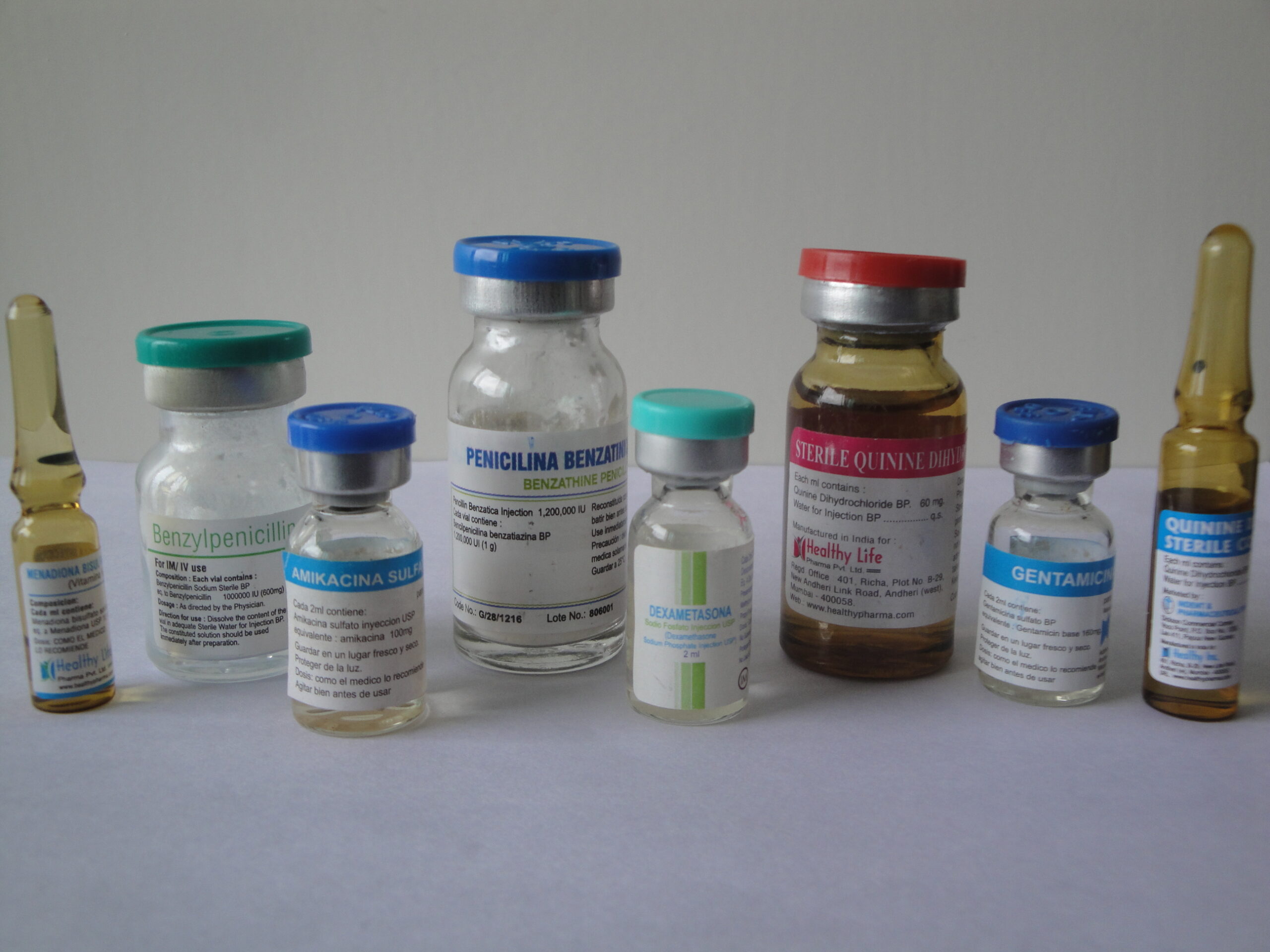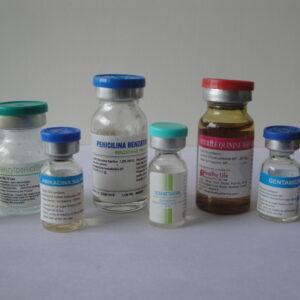Description
Vitamin B1,B2,B6,B12 Nicotinamide D Veterinary injection
Vitamins B1, B2, B6, B12, and Nicotinamide (also known as niacinamide or vitamin B3) are essential for various physiological functions in animals, including horses and livestock. These vitamins play crucial roles in energy metabolism, nerve function, and overall health.
If a veterinarian recommends injecting these vitamins, they may be addressing a specific deficiency or medical condition in the animal. Veterinary injections are typically administered under the guidance of a professional to ensure the proper dosage and effectiveness. It’s crucial to follow the veterinarian’s instructions regarding dosage, frequency, and any specific considerations for the animal in question.
Each vitamin has its own functions:
Vitamin B1 (Thiamine): Important for energy metabolism and nerve function.
Vitamin B2 (Riboflavin): Essential for growth, red blood cell production, and maintaining healthy skin and eyes.
Vitamin B6 (Pyridoxine): Involved in protein metabolism, immune function, and nerve function.
Vitamin B12 (Cobalamin): Necessary for the formation of red blood cells, neurological function, and DNA synthesis.
Nicotinamide (Vitamin B3): Essential for energy metabolism and skin health.
It’s important to note that while these vitamins are vital for overall health, excessive amounts can also be harmful. Always follow the veterinarian’s recommendations and do not administer any injections without professional guidance.
If you have specific questions about the health of your animal or the recommended injections, please consult with a veterinarian who can provide accurate and personalized advice based on the animal’s individual needs and health status.
Vitamin B1 (thiamine), B2 (riboflavin), B6 (pyridoxine), B12 (cobalamin), and nicotinamide (a form of vitamin B3) are essential vitamins that play various roles in the metabolic processes of animals. These vitamins are vital for energy metabolism, nerve function, and overall health.
Here is a brief overview of each vitamin:
Vitamin B1 (Thiamine):
Important for energy metabolism.
Essential for nerve function.
Vitamin B2 (Riboflavin):
Involved in energy production.
Plays a role in maintaining healthy skin and eyes.
Vitamin B6 (Pyridoxine):
Important for protein metabolism.
Involved in the synthesis of neurotransmitters.
Vitamin B12 (Cobalamin):
Essential for the formation of red blood cells.
Important for neurological function.
Nicotinamide (Vitamin B3):
Plays a role in energy production.
Essential for the maintenance of skin and mucous membranes.
Administering these vitamins via injection should only be done under the guidance of a veterinarian. They will determine the appropriate dosage and frequency based on the specific needs of the animal, its health status, and any existing medical conditions.
It’s crucial to avoid self-prescribing or administering these injections without proper veterinary supervision, as improper use of vitamins or incorrect dosages can have adverse effects on the animal’s health. Always consult with a qualified veterinarian for personalized advice tailored to the specific needs of the animal in question.
It’s important to note that specific dosage and administration details should be determined by a qualified veterinarian based on the individual needs of the animal.
Vitamin B1 (thiamine), B2 (riboflavin), B6 (pyridoxine), and B12 (cobalamin) are all essential B-vitamins that play crucial roles in various metabolic processes in animals. These vitamins are important for energy metabolism, nerve function, and the synthesis of red blood cells.
Nicotinamide (a form of vitamin B3) is also essential for various physiological functions, including the conversion of food into energy.
Veterinarians may prescribe vitamin injections for animals in cases where there is a deficiency or an increased need for these vitamins. These injections are typically administered subcutaneously (under the skin) or intramuscularly (into the muscle).
The dosage and frequency of injections will depend on the specific needs of the animal, and it’s crucial to follow the veterinarian’s recommendations closely. Overdosing on certain vitamins can have adverse effects, so it’s essential to use these supplements under professional guidance.
If you have specific questions about the administration of these vitamins for your animal, it is recommended to consult with a veterinarian who can provide guidance tailored to your pet’s individual health status and needs.
It’s important to consult with a qualified veterinarian for specific advice tailored to your animal’s health needs.
Vitamins B1 (thiamine), B2 (riboflavin), B6 (pyridoxine), B12 (cyanocobalamin), and nicotinamide (a form of vitamin B3) are essential for various physiological functions in animals, including energy metabolism, nerve function, and the formation of red blood cells. Veterinarians may prescribe these vitamins in injection form for specific health conditions or deficiencies.
Here are some general points about each of these vitamins:
Vitamin B1 (Thiamine):
Essential for energy metabolism and nerve function.
Used to treat conditions such as thiamine deficiency.
Vitamin B2 (Riboflavin):
Important for energy production and maintaining healthy skin and coat.
Used to address riboflavin deficiencies.
Vitamin B6 (Pyridoxine):
Involved in protein metabolism, immune function, and nervous system health.
Used to treat pyridoxine deficiencies.
Vitamin B12 (Cyanocobalamin):
Crucial for the formation of red blood cells and neurological function.
Often used to address vitamin B12 deficiencies.
Nicotinamide (Vitamin B3):
Plays a role in energy production and is essential for the health of the skin, nervous system, and digestive system.
Used to address nicotinamide deficiencies.
It’s important to note that administering these vitamins should be done under the guidance of a veterinarian. The dosage and frequency of injections will depend on the specific needs of the animal and the underlying health conditions.



